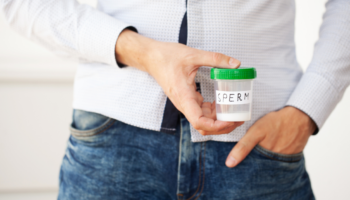Recently, there’s been a lot of buzz about new products for low female sexual desire. These range from trendy supplements, diets or exercises to expensive techno-devices. I worry about this trend and the growing emphasis on technology in particular. Sex and intimacy is about bodies, flesh-on-flesh, and the communication between two or more people. It is a very human experience.
Intimacy With a Device?
Even if a woman can take a battery-powered device and attach it to her clitoris until blood flow is sufficient to bring her to a state of arousal, is that really improving sexual desire? Imagine a woman in her bedroom, door closed, her partner eagerly awaiting permission to enter. While he waits, she attaches the device, and waits to become aroused. When her clitoris is engorged, she invites her partner in and they have sex. She’s primed; all he has to do is add the finishing touches.
But where's the intimacy between two people, the gradual buildup of arousal as they touch and caress each other? Where is the stroking and playing to get both parties in the mood? Does a device such as that described above replace much of that interaction? What about this woman’s ability to arouse herself with her fingers? The silky glide of fingers across labia, feeling the clitoris swell under her touch, reinforcing in her mind, through that physical connection, the ability to find her own way to desire and the resulting arousal. Isn’t there a danger that the body will become so dependent on one of these new devices that arousal without it becomes even more elusive? (Read: 10 Things You Didn't Know About Foreplay.)
Nothing Replaces Human Touch
I advocate the use of sex toys in sexual play for couples and for self-pleasuring. Toys can be very useful. I own various devices that give me pleasure, in combination with touch or on their own. However, nothing can replace that feeling of another body pressed up against yours or the urgency of fingers and lips. That’s where we find the most delicious pleasure - through connection. Desire is not some artificially induced thing that happens after we take a pill or press a button.
Some of the science behind fixing women’s broken sexuality’ is focusing on the mind. Rightly so, as I believe sexual desire starts in the brain - not by altering brain chemistry with medications, but by re-imagining how we think about sex and get in the mood for it.
Intimacy Is a Complex Issues for Women
Women who struggle with low libido may find these new devices helpful. Yet, I don’t think that they should be the first or only answer to what is a complex problem. There are other factors that need to be addressed when a woman experiences low sexual desire. Let’s consider these questions before resorting to expensive solutions:
- Is she overly stressed or tired? It’s hard to feel desire or think about sex if you feel overworked or stressed out.
- Are there other problems in the relationship? How well is the couple communicating and attending to each other’s needs?
- Does her partner know how to pleasure her? In other words, is she not orgasmic because of the quality of the sexual relationship? When the focus is on penetration or her partner isn’t interested in her sexual needs that can be a contributing factor in her lack of desire.
- Does she have a thorough knowledge of her anatomy? Does she know where her pleasure zones are located? Does she masturbate?
- Are there emotional issues, medical problems, or childhood factors that make it hard for her to becoming sexually engaged?
Many factors play into the issue of low sexual desire. We can’t just throw a pill or expensive device at a woman and tell her that’s the answer. We need to help women learn to express their wants and needs, both in and out of the bedroom. Women need to be encouraged to explore their bodies and identify what turns them on. Partners need to be involved in the process as well; they too have a role in stimulating desire and arousal.
Too often, women focus on their partners' pleasure to the detriment of their own. As women, we’re taught to please, and we’re not always very good at voicing our own wants and needs when it comes to sex. These factors often result in a lower level of sexual satisfaction and can lead women to avoid sex because it’s not pleasurable. (Get some tips on how to ask for what you want in Asking for It: 7 Tips to Getting the Sex Life You Always Wanted.)
The Answer Isn't Simple or One-Size-Fits-All
There is no simple fix for low female sexual desire. Fancy devices and medical intervention can offer some help, but they shouldn’t be presented as the answer. Female sexual desire is multi-faceted and nurturing it is a process. New drugs and devices can spur arousal, but they can't create true desire and intimacy. That's on us.




